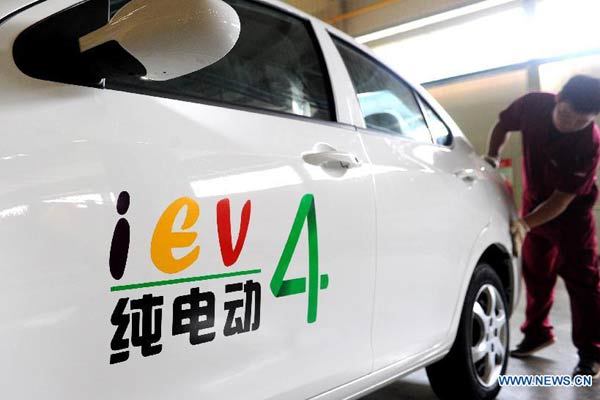Greener lighting a solution to climate change
- By Eric Rondolat
 0 Comment(s)
0 Comment(s) Print
Print E-mail China Daily, February 2, 2016
E-mail China Daily, February 2, 2016
|
|
|
A new electric car is on show in Beijing. |
We are at a crucial juncture in the history of our planet. The global agreement at the UN climate change conference in Paris in December is an unprecedented commitment to pre-empt a catastrophic rise in global temperatures. Now is the time to change fundamentally the way we use the world's resources-or face the consequences.
The crucial next step is a review mechanism, agreed at the Paris climate conference, to revise national targets over time.
Clever use of energy will unlock a host of economic and social-not to mention environmental-benefits. Best of all, solutions to this great energy challenge already exist.
Lighting is one of the easiest places to start.
Lighting accounts for a staggering 19 percent of global electricity consumption, yet we still cling to outdated and inefficient alternatives. LED lighting consumes at least 40 percent less energy than conventional lighting-and that's just the beginning.
Intelligent LEDs, embedded with sensors and connected wirelessly, can be managed remotely via the Internet. Their potential in tackling climate change is immense: connected lighting can deliver savings of up to 80 percent as households, businesses and entire cities reduce their environmental impact.
Our most recent estimate is that a universal switch to LED could slash lighting's share of electricity consumption to just 7 percent, a saving of €272 billion and a reduction in global carbon dioxide emissions of about 1,400 megatons by 2030.






